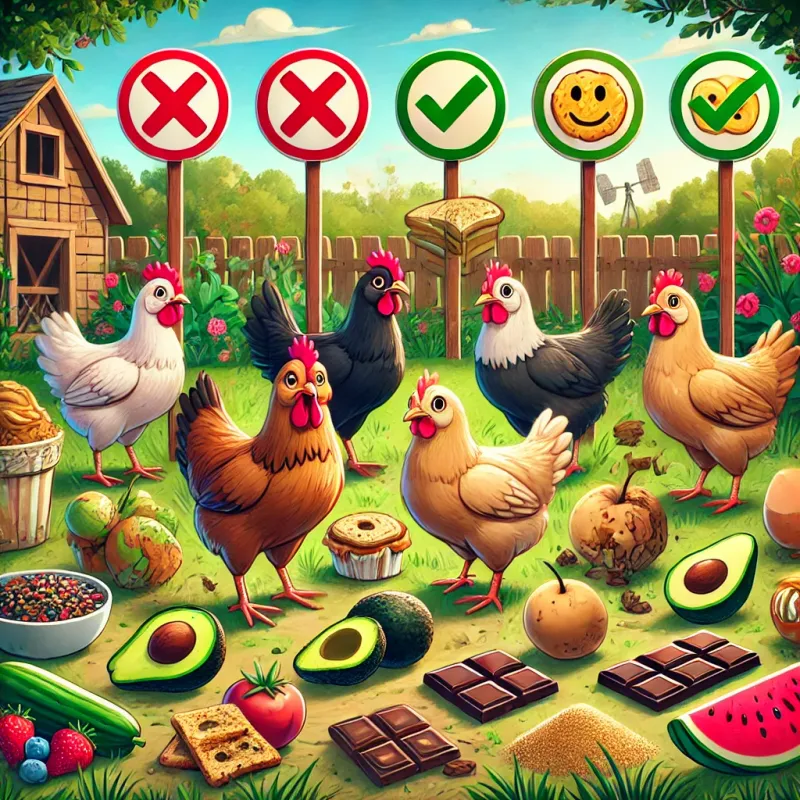Published on 2024-12-02 17:47
The Complete Guide to Farm Fresh Eggs: Storage, Safety, and Best Practices
Fresh eggs from your backyard chickens are a world apart from store-bought ones, but they require specific handling to maintain their quality and safety. This comprehensive guide will walk you through everything you need to know about collecting, storing, and handling fresh eggs from your flock.
The Natural Protection of Fresh Eggs
When a chicken lays an egg, it comes with a natural protective coating called the “bloom” or “cuticle.” This invisible layer:
- Seals the eggshell’s pores
- Prevents bacteria from entering the egg
- Reduces moisture loss
- Allows eggs to be stored at room temperature
Room Temperature vs. Refrigeration
Room Temperature Storage
- Only suitable for unwashed eggs with intact bloom
- Store between 55-75°F (13-24°C)
- Keep away from direct sunlight
- Can last 2-3 weeks when properly stored
- Common practice in many European countries
Refrigerated Storage
- Required for washed eggs
- Store at 40°F (4°C) or below
- Can last 3-6 months
- Prevents temperature fluctuations
- Standard practice in North America
Important: Once refrigerated, eggs must stay refrigerated. Temperature fluctuations can cause condensation, which promotes bacterial growth.
Proper Storage Techniques
Position Matters
- Store eggs pointed end down
- This keeps the yolk centered and the air cell at the top
- Use specialized egg cartons or dedicated storage containers
- Prevents the air cell from rupturing
Storage Don’ts
- Don’t wash eggs until ready to use
- Avoid storing near strong-smelling foods
- Don’t store in the refrigerator door
- Don’t reuse store-bought egg cartons long-term
Freshness Timeline
From day of laying:
- 0-2 weeks: Perfect for poaching and frying
- 2-3 weeks: Best for hard boiling (older eggs peel easier)
- 3-4 weeks: Still good for baking and general cooking
- 4+ weeks: Use the float test to check freshness
The Float Test
- Place egg in a bowl of water
- Fresh eggs lie flat on bottom
- 2-3 week old eggs tilt slightly up
- Old eggs float (discard these)
Washing and Handling
When to Wash
- Only wash eggs immediately before use
- Never wash eggs that you plan to store
- If eggs are very dirty, clean with dry cleaning methods first
Proper Washing Technique
- Use water warmer than the egg (prevents contraction)
- Gently clean under running water
- Never soak eggs
- Dry thoroughly before use
- Use immediately after washing
Record Keeping
Keep track of:
- Laying dates
- Washing status
- Storage method used
- Any issues with specific hens or eggs
Consider marking eggs with:
- Laying date
- Hen identification (if tracking individual birds)
- Use food-safe markers or pencils
Safety Tips
- Always collect eggs daily
- Check for cracks or damage
- Remove heavily soiled eggs from eating collection
- Wash hands before and after handling eggs
- Use dedicated egg-handling equipment
Common Questions
Q: How can I tell if an egg is still good?
A: Besides the float test, crack the egg into a separate bowl and check for:
- Off-putting odors
- Discoloration
- Unusual texture
- Multiple or broken yolks
Q: Why do some eggs have different colored shells?
A: Shell color is determined by chicken breed and doesn’t affect:
- Nutritional value
- Taste
- Storage life
- Quality
Special Considerations
Selling Eggs
If you plan to sell your eggs:
- Check local regulations
- Label appropriately
- Include harvest date
- Maintain consistent cleaning practices
- Keep detailed records
Seasonal Changes
Adjust storage practices based on:
- Ambient temperature
- Humidity levels
- Seasonal egg production
- Local climate conditions
Conclusion
Proper egg handling ensures both safety and quality. Remember:
- Preserve the bloom when possible
- Store appropriately based on washing
- Use proper storage containers and positioning
- Monitor freshness regularly
- Maintain clean collection and storage areas
With these guidelines, you’ll be well-equipped to handle your flock’s fresh eggs safely and effectively.
← Back to blog




